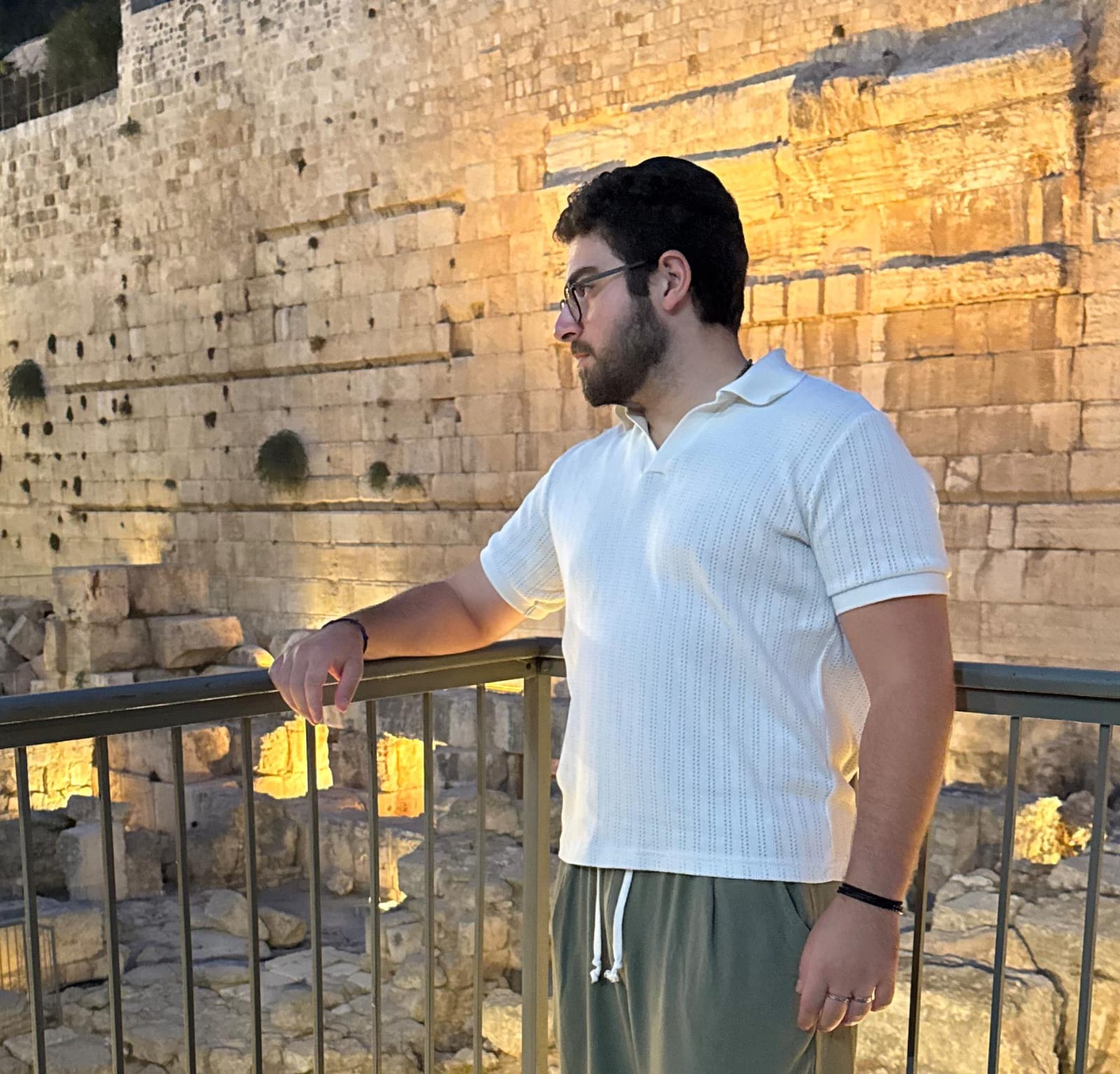Tell us a bit about yourself – where you’re from, what you do, and something you’re passionate about outside of FOA.
My name is Avner Mikhaeli. I’m an Oleh Hadash from Russia, and today I live in Givat Shmuel. I teach Math and Hebrew, and I’m passionate about education and helping others grow through learning.
How did you first hear about FOA? What inspired you to volunteer? Did you encounter online antisemitism before or after you started volunteering?
I first learned about FOA through the Shachak Program – Social Community Service. What excited me was the chance not only to see antisemitism online, but to actively fight against it. That felt meaningful and empowering.
What’s your role within FOA, and what kind of tasks or projects have you been involved in?
I’m part of the Monitoring Team. My job is to actively search for antisemitic content that violates platform rules and then report it using the training and tools FOA provides. Our team leader, Barak, guides us through the process and makes sure we always know how to act effectively.
Can you share one experience during your volunteer work that left a strong impression on you – a challenge, a win, or something you learned?
One was learning about an antisemitic “code” – the number 109. It’s used to claim that Jews have been expelled from 109 countries. People even explain it with an allegory: a child who keeps being expelled from school after school, with the message that the problem must lie with the child. Antisemites use this to imply that Jews are the problem, instead of recognizing the long history of scapegoating and persecution. Finding that code in use online showed me how these hateful ideas spread in hidden ways.
In what ways has volunteering with FOA influenced your understanding of antisemitism and how it spreads online? Has anything you’ve learned about online antisemitism surprised you?
From an anthropological perspective, it’s fascinating to see the creativity behind how people try to hide antisemitic messages. They design them specifically to bypass platform guidelines. It’s disturbing, but also eye-opening to learn the tactics used to keep hate circulating.
How do you balance volunteering with your studies, work, or personal life? Any tips for staying committed?
For me, the key is resilience. Either we do nothing and let antisemitism spread further, or we act and make a difference. That belief helps me stay committed and prioritize my time.
What message would you give to someone considering joining FOA as a volunteer?
Set your priorities and take the work seriously, but don’t overdo it. Volunteering should be a commitment, not a burden.
What are your hopes for the future in the fight against online antisemitism?
I’m hopeful about the role AI can play in detecting and removing antisemitism more effectively. I also strongly believe in FOA’s impact through its Trusted Flagger status – it’s proof that our work has real influence.

